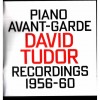| 国家: | 意大利 |
| 期间: | Avant-garde |
传记
Franco Evangelisti (January 21, 1926 – January 28, 1980) was an Italian composer specifically interested in the scientific theories behind sound.
Born in Rome, Evangelisti abandoned engineering studies in order to dedicate himself to musical composition. In 1948 he became a composition student of Daniele Paris in Rome, where he also studied piano with Erich Arndt. In 1952 he moved to Germany, where he pursued advanced composition studies with Harald Genzmer at the Hochschule für Musik Freiburg (Ferrari 2001). Starting in 1960 he took part in the Darmstädter Ferienkurse für Neuen Musik, where he had the opportunity of meeting Werner Meyer-Eppler of the University of Bonn, thanks to which he began to be interested in electronic music. At the invitation of Herbert Eimert, in 1956–57 he worked in the electronic studio of the Westdeutscher Rundfunk in Cologne (Ferrari 2001).
In 1957, the orchestral conductor Hermann Scherchen invited him to work in the Studio of Experimental Electroacoustics of UNESCO in Gravesano, where he became involved with biophysics and explored the possibility of directly translating brain impulses into sonic vibrations.
In 1958, together with Karlheinz Stockhausen and Luigi Nono, he inaugurated the Experimental Studio of the Polish Radio in Warsaw, where in the following year he was invited to hold some seminars on electronic music.[citation needed] In 1959 he was brought by the promoters, to the International Week of New Music in Palermo.[citation needed] In 1960, together with other musicians such as Francisco Pennisi and Aldo Clementi, he founded the Nuova Consonanza association and, in 1964, the improvisation group of the same name (Ferrari 2001).
In the early 1960s he famously attacked the lesser followers of the Darmstadt School of composers, of which he was generally reckoned to be a member, accusing them of being merely dodecaphonic police.[citation needed] He moved to Berlin for two years (1966–68), hosted by the Deutscher Akademischer Austauschdienst and the Ford Foundation. On returning to Rome, he held a course in experimental electronic composition at the National Academy of Santa Cecilia. In 1972 the obtained an assignment of leading the course in electronic music at the Alfredo Casella Conservatory in Aquila. In 1974 he was appointed professor of electronic music at the Conservatory of Santa Cecilia in Rome, a post which he held until his death. In those years he gave concerts with the Gruppo di Improvvisazione di Nuova Consonanza, in Italy as well as in foreign countries, and continued with conferences and seminars on the “new music”. Compositional activity became less therefore, in order to leave space mostly for research and for theoretical development.[citation needed] In 1980, after nearly twenty years’ work, he finished his book Dal silenzio a un nuovo mondo sonoro (From Silence to a New Sonorous World), which has come to be regarded as "an important record of one of the most radical minds of the Italian postwar avant garde" (Ferrari 2001). He died in Rome on 28 January 1980.







